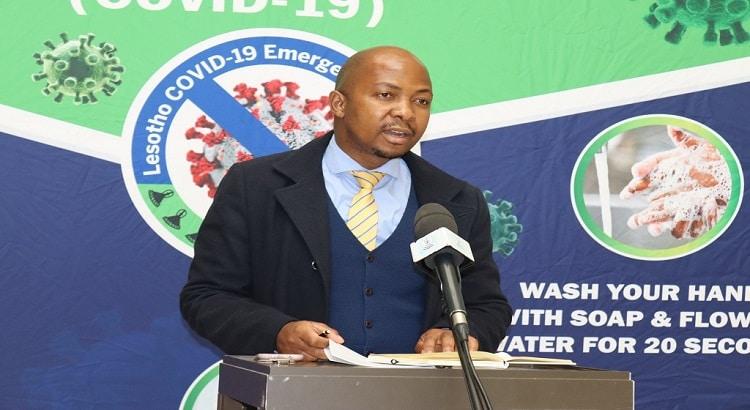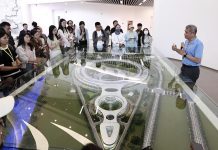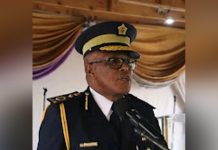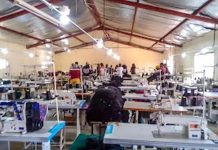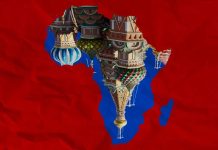Africa-Press – Lesotho. Public Eye newspaper last week had one on one with deputy leader of the Basotho Action Party (BAP), Motlatsi Maqelepo, to discuss his political journey, what he stands for as a young leader and politician and to find out what BAP has in store for Basotho.
PE: Who is Motlatsi Maqelepo and what makes him tick? I consider myself as a public servant; currently I am a member of Parliament for Berea constituency and I was born and raised at Sehlabeng sa Thuathe.
I have worked as a civil servant and as a junior officer for parastatals before working for private companies, and ultimately establishing my own company.
In all these levels, I have been motivated by the desire to do good, to be a servant leader, and to obtain the satisfaction that comes with completing tasks and contributing to the world.
If there is anything that makes me tick, it is the ability to turn everything that I touch to gold. PE: Tell me about your love for politics, when and how did it all start?
At age 11 in 1990 I used to travel with my two uncles who had just returned from exile under LLA (Lesotho Liberation Army); they held political rallies in preparation for the 1993 elections which their elder brother eventually won to become the MP for Berea.
We used to sing BCP songs and I fell in love with what they we were doing. In 1992 I left for Morija for high school education. In the years after 1992 I did not get involved much in politics but focused on my education.
The only thing that I can recall is that around year 2000 I got tired of the then governing regime. There was a dissatisfaction that I couldn’t explain within myself, driven by a desire for a governance that was different and progressive.
It was then easy for me in 2006 to have a keen interest in Ntate Tom Thabane when he started a new party for he ignited my political spark and I felt drawn to his manifesto. PE: You are now part of the new political party, the BAP. What does the party stand for and what do you promise the Basotho?
Our fundamental principles are: integrity, equality, transparency and responsive action and our values are: accountability, inclusion, and non-discrimination, among others.
We believe if these values can be entrenched within every BAP member, and ultimately in every Mosotho, we shall easily achieve our vision of building a nation where all people thrive, prosper and live in peace.
We aspire for a future characterised by a stable, constitutional and participatory democracy, a united and prosperous nation at peace with itself and neighbours. PE: What sets you apart from the rest?
We believe in clean governance; a government that is accountable to the people in whose trust all bequeath their rights and taxes. We believe in full application of the rule of law and a just society from which democracy can obtain; a country where the law applies universally to all, irrespective of their might or influence.
We also strongly believe that the economy of this country can be transformed within five years by ensuring Lesotho becomes an inclusive and productive state, other than being a consumerist state.
We need to transform agriculture, manufacturing, tourism, sports, technology, mining, fishery, etc. PE: You emerged as an unknown within the ABC ranks and charted an impressive career path, reaching cabinet, which is not common for young politicians in the country. What enabled you to reach such heights?
I chose politics over many other things; I was not a bad ICT Specialist, I wasn’t bad in soccer, I still loved finer things that by its nature politics deprives one, but I chose this path.
I chose to serve even when it required that I give up everything. I chose politics because I am fascinated with helping people, I get more fulfillment in changing lives than I would in a huge bank balance (except being a politician actually takes money).
I am committed to being the very best in everything that I do, and in politics too, I used the same mantra. I want my life to be an assurance to every Mosotho that its possible for any individual to reach greater heights when fully committed in what they are doing.
But, most importantly, I was open to learning and contributing at both National Assembly of Lesotho and at the SADC Parliament Forum which I both served. The two capacitated me a lot and I in turn gave the best of myself. PE: Who inspired you and why?
My mother. Her hard work, dedication and humanity inspired me a lot. I am the last of her three boys. At 27 years, after her three sons were born, she returned to school at primary level.
She was so dedicated, she ended up with two diplomas and became a teacher. She was a constituency secretary for ABC at Berea 27 for 2 terms. She has been a backbone of my career, and she is still contributing immensely in ways that can never be fully put into words. PE: Are there certain skills that have helped you see what your next step is and to make yourself known as someone who can actually lead?
MM:
I have Degree in Computer Science and Statistics. Education in itself opens up one to new ideas and thinking. It widens thinking capacity and teaches absorption and expunging of information; all which are necessary for leadership.
I am both dynamic and agile, which is important in politics. These need to be coupled with tolerance, humanity and humility as sometimes it gets so frustrating that one can opt to quit if one doesn’t have them. I still need to equip myself more by furthering my studies in leadership and governance. PE: What values are most important to you as a leader?
I am a leader who never sets himself above those I am leading. I only do that when I am carrying my responsibilities and those stem directly from their mandate.
To be this leader, I have to be understanding, respectful, responsible, tolerant and loving. PE: And what has been the most significant barrier in your career?
Let me be honest about this one, I was a scientist and scientists are not the best in spoken English. There were instances of hot debates in SADC Parliamentarian’s meetings and my incapacity to fully express myself in English would get in the way.
But I fell in love with it, it was very empowering to constantly challenge myself. PE: When you began your career in politics, did you ever imagine that you would be a part of the leadership of a political outfit as is now, and in a landscape dominated by very senior players?
I never got to think about it, but I can assure you its equally difficult to emerge as a constituency winner, both as a party representative and Member of Parliament. If you are good enough to win either of the two, you are good enough for anything politically. PE: Have you ever been afraid to take on this job?
When my mother and then Chairperson of the Youth League at Berea 27 approached me about the issue, I shied away. Three days later, I told them I am willing to give it a go, and from then on I never looked back. PE: Who is your favourite leader? Why?
Prof. Nqosa Mahao without a doubt. He has all the qualities of a seller leader. Knowledgeable like Bantu Biko, inspiring like Kwame Nkrumah. An exceptional man that walks his talk like Thomas Sankara, a uniting force like the founder of this nation King Moshoeshoe I.
He is a visionary leader, a leader with humility and servitude, a leader with technical comprehension and fortitude. A leader that Lesotho currently desperately needs. PE: What strengths are you brining into the BAP leadership?
Quality leadership that draws its power and mandate from the people, hard work, dedication, transparency and accountability. These have been missing in many governments.
PE: Now let’s talk of Maqelepo the politician. What are your ambitions in this department, what will you do differently if your party becomes government?
I want to contribute immensely towards the transformation of Lesotho to become a country that we all aspire to see, a country which is economically prosperous, peaceful with itself, healthy and educated people, corruption free, etc.
For Lesotho to get to that stage, we need to set up a clean and accountable government. As BAP, this should start within the party, it will be easier to translate it to government.
The kind of people that will be elected to be MPs, councilors and other positions of importance will have to pass the BAP test first, one of which is no record of corruption in any form.
We need to empower the civil service, empower the judiciary and empower parliament for oversight. These are key for a clean and responsive government.
PE: What challenges did you encounter on your path growing up in politics and during your time in the ABC and how did you persevere through these challenges?
I went through a terrible war to become ABC representative in 2017. Even after becoming a Member of Parliament in 2017, some of my then ABC comrades in my constituency disliked me and it caused tension.
But surprisingly with time they got to understand me and we are comrades now. They got to know that my strand of politics is love, truth and people first. PE: Can you talk about your leadership style?
I am a leader that believes in true democracy but I am also aware that leadership denotes responsibility, more so when there are hard decisions to be made.
I prefer for people to have control of their own destiny by making decisions for themselves. I do however become very hard when it comes to delivery and accountability. PE: Do you experience resistance when you are leading people your senior?
Challenges will always be there when leading people but the good thing is if as a leader you show the way, people would want to follow you. And what you lack in age, you augment with credibility and even the older folks respect you back. PE: Who are your role models? How have these role models helped you along your path as a politician?
Barrack Obama will be top of my list, he is very articulate and charismatic. People want you to give them hope as a leader, make them dream, give them confidence that they can achieve the impossible. PE: As a role model yourself, what advice would you offer women who want to reach the highest level in politics?
They should know nothing in life comes easy and that positions within political ranks are even harder. The starting point is at the branch level and there are no short cuts, no connections.
Go to a branch, work with the people who form part of the branch, as you keep on engaging with them, they will know your value, they will recommend you at constituency level.
There you will find comrades coming from say 15 branches, you will still need to prove your value. Its not an easy thing, but if it’s something you like, something that you do with all passion, you will be recognised. PE: What advice would you give to youth who aspire for political leadership?
Education is key in everything, get good education, participate in community initiatives, join political parties at branch, learn from elder comrades at political meetings.
Work on tolerance, humanity and humility; you can’t survive in politics if you are not humble. PE: The Government of National Unity, where do you stand as a party, and what is your personal understanding of the concept?
My understanding is that it is a government of all parties but it will obviously not work because even a coalition of three parties is failing in this country.
Corruption is still raging high. Unfortunately, every party when given a stake in government, they start thinking of their supporters, not Basotho as a whole.
The country first needs to have strong and stable government institutions with proper policies to overcome the wrong influence of politicians. We need institutions that are stronger than the politicians which steer for the government to be stable and the country to progress. PE: Do you support the granting of an amnesty to the currently jailed perpetrators of atrocities that have created debate over the TRC?
No, not at all. I personally call that bill “National Impunity Bill”. It totally violates the constitution of Lesotho and undermines the principles of equality before the law, universal application of the law and justice for all.
It is elitist and elevates some criminals and their actions to artificial importance at the expense of victims. We are a country build on constitutional democracy; this bill is actually a threat to our fragile democracy.
Let me just mention the clauses of the constitution that it violates: Section 2, 4, 18, 19, 99, 101. It simply disregards our constitution. It’s a bill so bad I wish we never even had to spend time and money talking about when there are issues of GBV and shocking murder rates that need our collective attention as a country.
Further, it does not take into account the following international treaties which Lesotho is a signatory to: – African charter on Human and People’s rights
Universal Declaration of Human Rights
African Union Transitional Justice Policy PE: Where do you see Lesotho five years from now?
If we get it right in 2022 elections, and vote BAP we would have to refocus ourselves as a nation by restructuring our institutions, reforming our judiciary, strengthening our Parliament and then growing our economy.
We would have dealt with the thousands of pending cases and cleared our court cases’ backlog. We would have reinstated public trust in the government and re-purposed the value in being a Mosotho and truly give our people a reason to wear their flag with pride. I believe we still can.

